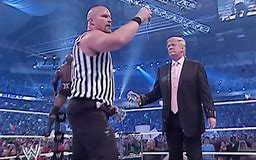For the bulk of my academic career I worked on issues of regime change and interest group intermediation, with a particular interest in Latin America. I wrote a couple of books (one co-authored) about state-labour relations in several South American countries and a fair number of articles that included discussion of how labour engaged in collective action under different regime types. The comparative study of state-labour relations remains an abiding interest of mine.
One of the axioms of comparative democratic labour relations is that unions will engage in more cooperative labour relations strategies and therefore strike less under Left governments than they will under Right governments. The presumption is that since Left governments are working class based or supported, and because they are sympathetic to working class concerns in their policy platforms, there is less incentive for unions to take strong collective action against them, particularly with respect to strikes and  other forms of labour service withdrawal. This is especially so because such direct action could undermine the Left government in question and leave it vulnerable at the next election.
Because unions presumably prefer to have Left governments over Right governments in office, resorting to labour service withdrawals would be a counterproductive union political strategy over the medium term even if economically productive over the short term. That is true of public sector strikes in particular (since strikes, even when focused on economic issues, are inherently political when they involve the state as employer), but private sector strikes are also seen as electorally injurious to Left governments (after all, if a Left government cannot “control†unions then what is the point of having them?).
In terms of so-called political strikes as well as economic strikes, Labour governments are generally thought to offer a better prospect for labour peace.
Conversely, unions supposedly dislike Right governments and therefore engage in more confrontational approaches to labour relations, particularly if there perceive that there has been a rollback of union legal and economic gains under those or previous Right governments. Both economically and politically, unions have reason to adopt more militant strategies under Right governments.
The subtleties embedded in this dichotomy are found in the strategies of public sector versus private sector unions against a backdrop of relative union density and the legal frameworks governing wage-setting. This assumes that union leaders and members share the same ideological orientation and that union leaders accurately transmit the material demands of the rank and file during negotiations with the State and employers (i.e. the principal/agent relationship is tight and coordinated). At that point employer characteristics at the level of the firm as well as productive sector come into play, set against a backdrop of relative business sectorial organisation (both as producers and employers) and the labour relations framework operative at the time. A collective action and strategic interaction is framed by macroeconomic conditions and government budgets, with sectorial growth and Treasury surpluses being determinants of the latitude for negotiation in any particular instance.
For the last three decades all of this occurs in the context of the globalisation of production, consumption and exchange under market-oriented macroeconomic policies developed and implemented by public sector technocrats that seek to outsource public sector service provision and downsize the legal authority and managerial and regulatory functions of the State as part of government mandated, market-oriented ideological agendas.
In the era of market-oriented economic reform, changes in labour relations’ legal frameworks have tended to favour employers and business associations over labour unions under both Left and Right democratic governments, with the degree of favouritism seen in the approaches towards collective bargaining adopted by each. Overall, although Left governments have mitigated much market-oriented labour reform while Right governments have sought to accentuate and exploit them in order to weaken the labour movement and atomise working class representation and collective strength, the trend has seen a weakening of union power across the democratic capitalist world as measured in union density, membership numbers and the collective rights and legal authority governing working class representation in production. This has been acutely felt in the private sector where individual worker rights and contracts predominate over collective rights and representation. With their relative collective strength, public sector unions remain as the diminished core of most contemporary labour movements in capitalist democracies.
A key factor in determining the propensity to strike is wage-setting institutions. Generally speaking, the more centralised the bargaining nexus and more monopolistic the bargaining agents doing the negotiating, the more likely that unions will prosper in their demands without having to resort to strikes. In contrast, the more decentralised the bargaining forum and the more disparate the bargaining agents, the more likely it is that employers will have the upper hand in bilateral negotiations with employees, thereby increasing the possibility of strikes. For example, tripartite (labour, state, capital) wage boards governing wage negotiations in specific economic sectors tend to push compromises that trade incremental wage gains for productivity, job security and reinvestment guarantees. Conversely, enterprise level bargaining between employers and various employee bargaining agents tends to fix or depress wage bills in exchange for non-wage guarantees. In New Zealand collective bargaining is more closely based on the latter model rather than the former and yet overall strike levels have remained low.
The way in which the union movement is incorporated and inserted in the political system matters in this regard. The form of initial incorporation (that is, the way in which unions are initially integrated into the national political system), may be more of historical rather than practical import for well-established unions created in the previous century and whose insertion in the political system today was consolidated some time ago. But initial incorporation matters much to recently organised contemporary unions without long political histories. That is because the terms of their political incorporation and subsequent political insertion in the political system are still being determined and sometimes disputed, including by older or more established unions as well as the State and employers. These may not echo or even resemble the conflicts surrounding initial labour incorporation and political insertion in the past, but they nevertheless condition the way these newer collective agents are allowed to exercise economic and political representation in the present context.
There are three main forms of labour political insertion. In some liberal democracies organised labour is inserted in the political system in Left party dominant fashion, e.g., the party dominates the union in both leadership selection as well as member political affiliation. In other liberal democracies unions dominate or control the party, with union representatives holding key Party positions down to grassroots organising and regularly running for office. In still others unions are independent of Left political parties although nominally sympathetic to them, with union leaders and members displaying a broader range of party affiliations than under the first two types. In illiberal democracies so-called “yellow†unions (factory or business unions and “professional associationsâ€) exist that are independent or affiliate with Right parties. In the main these are not considered to be authentic representatives of working class collective interests because they are created by or at the behest of employers in lieu of them.
This brings up the subject at hand. There currently is the possibility of nurses, public servants and teacher’s strikes in the next few weeks. Conservative commentators have claimed that this is to take advantage of the Labour-led coalition’s “weakness†and to seize the moment of opportunity provided by Labour’s unwillingness to confront the unions in question. That runs against the conventional wisdom about Left governments and unions. So the question is: why are the nurses, public sector and post-primary teacher’s unions threatening to strike?
One answer may lie in that all of these collective agents are public sector unions that are independent of the Labour Party and its coalition partners. Membership density is high but the sociological demographic in each is changing, with younger members being more ethnically diverse and less identified with the traditional class structures of the industrial era (since those under 30 are of the post-industrial, post-modern age). This may have led to a rejigging of agent/principal relations within the respective unions that might make them more prone to challenge the labour relations orthodoxies of the past, to include being more cooperative when Left governments are in power.
Another answer may lie in the fact that Labour, for all of its “progressive†policy pronouncements and initiatives, still clings to market-driven logics of production that, even when cushioned along the margins, reinforce the collective bargaining dominance of capitalists. Seen in labour legislation and the role of national labour administration as an interlocutor between labour and capital, this includes cost-cutting managerial rationales in the public sector, where modern Taylorist principles have been borrowed from the private sector and applied to public sector service provision.
That bureaucratic orientation could be partially due to the fact that most Labour leaders are career politicians with few backgrounds “grounded†in the realities of working class activism, and/or because the party’s focus has recently concentrated more on identity rather than class politics. This has caused Labour to accept market logics in principle and market-oriented solutions to employment relations in fact. The NZ Labour Party is less a working class party than a coalition of post-industrial causes joined by antipathy to conservative (read: Anglo-Saxon Christian capitalist heterosexual and patriarchal) mores. Seeing the situation in this light could well disincline nurses, teachers and bureaucrats from continuing to toe the “cooperative†line, especially if the union demographic traits outlined above prove to be correct.
It is worth noting that the long-established unions affiliated with the Labour Party have not uttered a peep about strikes, to include not offering solidarity with the nurses and teachers. Newly created unions like UNITE in the private sector have engaged in strikes regularly against private employers under the previous Right government and are supportive of the action. But in general the union movement in New Zealand has remained out of the conflict between the State (as manager and employer via the civil service, DHBs and Education Ministry) and the nurses, bureaucrats and teachers unions.
Another question is why did these unions (or most others, for that matter) not strike regularly when the National government was in office? Was it a matter of contracts being in force? Or was it the limits placed on strike action both legally and practically? On the face of it, it seems odd that civil servants, nurses, teachers and other productive groups would wait to strike until Labour was in office if they were out of contract towards the end of the National government. Did they think that striking in an election year would lessen Labour’s chances of winning a plurality and forming a government or, put more appropriately, strengthen National’s arguments that they needed to continue to hold a tight reign on labour market dynamics less the economy lose momentum? This is true for private sector unions but particularly so in the case of public sector unions. Or are the conservative commentators correct and non-Left party affiliated public sector unions simply more willing to exploit Labour’s perceived “weakness†on collective bargaining matters?
If so, then the Labour-led coalition has a problem that is more political than economic.
I am still working through the logics at play because I do not know the internal dynamics of the unions in question nor the Labour-led government’s strategy for handling the strike threat. But if any readers would like to join the discussion and illuminate me on the details of each position, that would be welcome.




